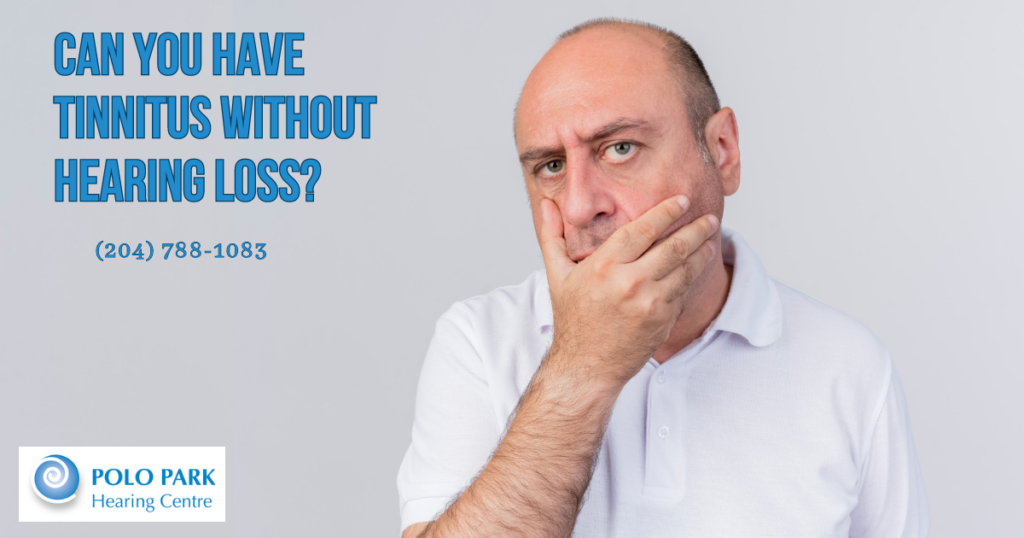
Image by stockking on Freepik
Although tinnitus is generally associated with hearing loss, it is possible to experience tinnitus without hearing loss. A significant percentage of people, about 8% ,who experience tinnitus will pass a hearing test with an audiogram in what is considered the “normal range”. When you consider the fact than StatsCan reports over 2 million people consider their tinnitus to be bothersome, it’s still a lot of people.
Tinnitus is the perception of sound in the ears or head when there is no external sound source. It can take the form of ringing, buzzing, humming, hissing, or other sounds.
Hearing Loss Is Not the Only Cause of Tinnitus
There are several potential causes of tinnitus other than while hearing loss due to age or noise induced hearing. Some other factors that can contribute to tinnitus include:
Earwax Blockage: It might sound odd, but a buildup of earwax can cause tinnitus. When earwax obstructs the ear canal, it can affect how sound is processed and perceived.
Medications: Certain medications, such as high doses of aspirin, antibiotics, diuretics, and some cancer drugs, can cause or worsen tinnitus as a side effect. This is known as ototoxicity.
Medical Conditions: Some medical conditions, like Meniere’s disease or temporomandibular joint (TMJ) disorders, can lead to tinnitus. These conditions may not necessarily involve hearing loss as a primary symptom. Serious conditions such as Multiple sclerosis (MS) or even tumours have triggered tinnitus in individuals as they interfere with the nerves that conduct signals between your brain and your ears
Stress and Anxiety: Stress and anxiety can exacerbate tinnitus or even be a primary cause. Stress can make you more aware of the tinnitus sound, and anxiety can increase its intensity.
Head and Neck Injuries: Trauma to the head or neck can disrupt the auditory system and lead to tinnitus.
Vascular Issues: Problems with blood vessels, such as high blood pressure or turbulent blood flow, can sometimes be associated with tinnitus.
Take Tinnitus Seriously – It Could Be a Major Symptom
It’s essential to consult a healthcare professional, such as an audiologist, if you experience tinnitus, especially if it persists or worsens. They can perform a thorough evaluation to determine the underlying cause and recommend appropriate treatment or management options. If there is an underlying medical condition a referral to a medical professional may be necessary. This is why you want to take tinnitus seriously.
Unlike hearing loss, which has been reported to be an independent risk factor for dementia, the link between tinnitus and cognitive impairment remains unclear.
What does Tinnitus Sound Like?
Tinnitus can take any form and is often referred to as phantom sounds. The most common forms are ringing, buzzing, humming, hissing, whooshing, whistling, or constant tones. For some people their tinnitus is aggravated by certain noises such as the sound of an air conditioner or a hair dryer. The video below is a bit dated but gives a good demonstration.
Taking The First Step
In summary, while hearing loss is a common association with tinnitus, it is possible to have tinnitus without hearing loss. If you or someone you know has tinnitus, the first step is to have a hearing test and evaluation to rule out the need for medical intervention. From there we can explore treatment options. We have two specialists that hold the title Tinnitus Care Provider Certificate from the International Hearing Society that are also Board Certified Hearing Care Instrument Specialists. Each specialist has over 10 Years experience and have helped clients with tinnitus management for years. Please call (204) 788-1083 or use the form on this page to contact us for an appointment.
Thanks for reading.

